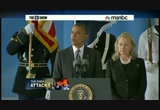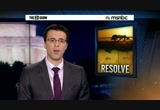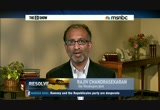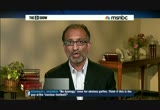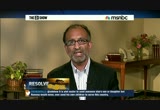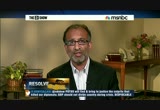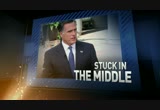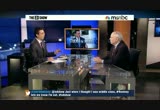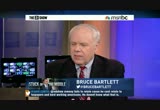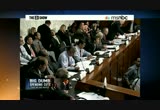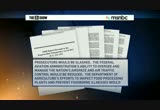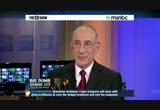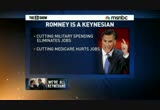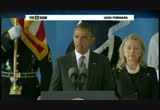tv Lockup Special Investigation MSNBC September 15, 2012 1:00am-2:00am PDT
1:00 am
now the president is going to have to unveil his straight certificate. the long form one. i love these people. good evening, americans. and welcome to "the ed show." i'm ezra klein in for ed schultz 53 days until the 2012 election. tonight on "the ed show," details on the attack in libya that reflect on the policy argument that's come to dominate the campaign. details, which you can't really understand the foreign policy argument that's come to dominate the campaign. as ed would say, let's get to work. the four victims of the assault on the u.s. diplomatic mission in benghazi, libya, were honored today at andrews air force base. coffins carrying the bodies of the slain diplomats arrived in the united states on a military plane from libya. president obama spoke of the sacrifice made by the foreign
1:01 am
service workers. the president was joined by his national security team including secretary of state hillary clinton. overseas protests spread across 17 different countries in the middle east as anger mounted over a strange and mysterious and very low-budget film denigrating the prophet muhammad. in cairo, one protester was killed today in a clash with police blocking the way to the u.s. embassy. we'll be monitoring the events in the middle east and will bring you developments immediately. back here, there has been a key question since the romney/ryan ticket launched their attack on the obama administration's handling of the events in libya and egypt. that question is, what would they is done differently? and the answer, according to the romney/ryan campaign, is if we were in charge, it never would have happened. and why wouldn't it have happened? one word. resolve. richard williamson, a romney foreign policy adviser said, quote, the respect for america has gone down.
1:02 am
there's not a sense of american resolve. if there had been, then, quote, you'd be in a different situation. vice presidential candidate paul ryan made a similar point articulating the romney/ryan position. >> in the days ahead and in the years ahead, american foreign policy needs moral clarity and firmness of purpose. [ applause ] only by the confident exercise of american influence are evil and violence overcome. that is how we keep problems abroad from becoming crises. that is what keeps the peace. and that is what we will have in a romney/ryan administration. >> all right. moral clarity and purpose. that, that is what keeps the peace. ryan's statement harkins back to mitt romney's three-point foreign policy plan he detailed on wednesday in response to the libyan assault.
1:03 am
it was his third point after confidence and clarity that syncs up with what his running mate said. >> number three is resolve in our might. that in those rare circumstances, those rare circumstances where we decide it's essential for us to apply military might, that we do so with overwhelming force. >> it is hard to say what it means to run a resolve-based foreign policy against your enemies because the question is, what form does all that resolve take? for president obama, there has been a form of resolve, and you can see it right here. it's physical. it is an unmanned predator drone. regardless of whether he wins a second term, this will likely be president obama's single largest legacy in how the american government conducts war. an understanding of the centrality of the drone to american foreign policy in this era, understanding that in most cases or at least many cases the drone is now how our most committed enemies experience our resolve. helps lift quite a bit of the haste surrounding the events of this past week.
1:04 am
"the new york times" reported recently that, quote, mr. obama has placed himself at the helm on top secret nomination processes to designate terrorists for kill or capture of which the capture part has become largely theoretical. since 2004, u.s. drone strikes have killed 49 militant leaders in pakistan, according to analysis by the new america foundation. one of those leaders killed was abu alibi, a man recently named al qaeda's number two which turns out to be a dangerous job these days. foreign policy magazine connected the june strike on al libi with fatal attacks on the attacks on the consulate in benghazi, libya. quote, as details emerge, it appears increasingly probable that al qaeda linked groups were behind the violence. on the 11th anniversary of the 9/11 terrorist attacks ayman al zawahiri said, according to cnn, al libi's blood is calling,
1:05 am
urging and inciting you to fight and kill the crusaders. from what we think we know attacks in benghazi were not about the weird internet video which created the attacks in egypt. the attacks in benghazi were in response to an american drone strike against an al qaeda leader. that wasn't an anomaly, wasn't some rare event. this is how the obama administration has chosen to prosecute its offensive against terrorism. although the u.s. government has only officially acknowledged drone strikes in pakistan, nongovernmental organizations and civil rights groups monitored alleged u.s. drone strikes in yemen, in somalia, and in afghanistan under the obama administration. in pakistan, alone, though, there have been 344 known drone strikes from 2004 until today and president obama has already authorized six times, six times as many strikes as president
1:06 am
george w. bush. those strikes have killed between roughly 1,900 and 3,300 people according to estimates by independent groups and although u.s. officials have gone on record saying the number of civilian casualties from drones is zero or next to zero, independent estimates believe there have been between 282 and 881 civilian deaths in pakistan alone. pakistan alone. as a result of drone strikes. in fact, the government has claimed extraordinary legal authority to what are called, quote, signature strikes. these are attacks that are based on patterns of behavior, either among individuals or groups, not attacks on a specific terrorist presence. and the obama administration has been utterly immune to criticism on this score. as cnn reports, pakistani parliament voted in april to end
1:07 am
any authorization for the drone program. a vote the united states government has simply ignored. the validity of the program is questioned by not only foreign governments by american civilians. american civil liberties union is taking the government to court over targeted killings. oral arguments in the circuit court begin on this case next week. aclu legal expert sees it, the president has created a bureaucratized killing program that will be available to every future president and against every future enemy or purported enemy. right now, the current purported enemy is broader than it was eight years ago. there's been a shift in targets from al qaeda leadership to taliban foot soldiers. under george w. bush, about 25% of targets were al qaeda leaders. 40% were taliban targets. under president obama, those numbers are 8% and 50%. an unnamed pakistani militant told a "new york times" reporter in 2010, i think this quote is
1:08 am
kind of amazing, it seems they really want to kill everyone, not just the leaders. even osama bin laden toward the end of his life was increasingly concerned about drone attacks decimating his rank and file. in a 2010 memo, he advised his men, to, quote, leave the pakistani tribal regions where the drone strikes have been overwhelmingly concentrated. that brings us back to libya. today, commercial airspace in benghazi was shut down as drone aircraft flew over the city. a libyan official told "reuters," two american drones flew over benghazi last night with knowledge of the libyan authorities. they were visible to the eye and came under attack by anti-aircraft weapon used by armed militias. this is the form of president obama's resolve. it's a resolve the american government can and should kill those it believes to be its enemies and it's taken the precise shape and included the fire power of the unmanned aerial drone. that resolve, some believe, may not be lawful, but it is definitely forceful. it's almost ruthless. and we now think it's part of
1:09 am
what led to the attacks in benghazi which is not to say it's the wrong thing to do. that's a more complicated question. but it is to say that the idea that more assertive application of american power will lead to less violence against america is a hard idea to find evidence for in recent history. and so the question for governor romney is what exact form his resolve would take such it would simultaneously be more effective and encourage less backlash from the terrorists who feel their power is slipping away? joining me now is associate editor at the "washington post" and someone i'm proud to call a colleague. it's good to see you. so you know all of this 100 times better than i do. is this right? is the drone warfare under president obama really a central and unprecedented as it seems from the numbers? >> oh, most certainly.
1:10 am
there's been a massive uptick under president obama. it is a fundamental principle tool of the way this administration wages war. it's been the principle tool we've used to decimate the ranks of al qaeda. yes, s.e.a.l. team 6 was responsible for the killing of osama bin laden but really the evisceration of the middle and upper ranks of al qaeda's leadership in the tribal regions of pakistan has been because of a result of drone strikes targeted and operated by the central intelligence agency as well as our most significant inroads in some cases against taliban figures in pakistan. yes, obama surged lots of conventional troops into afghanistan but it's been special forces activity in afghanistan and drone strikes in pakistan that have really had the biggest impact there. so to suggest that, you know, this is somehow demonstrating a lack of resolve, quite frankly, ezra, is absurd. i mean, i talk to lots of senior
1:11 am
u.s. military and intelligence officials and over the past couple of years with regard to the situation in afghanistan and pakistan. and, ezra, not once have i heard any frustration, consternation from them that they have not been able to take out a target that they thought was a legitimate target in pakistan or in afghanistan using a drone. getting any sort of pushback from the administration. it just hasn't existed. there's no record to support that. >> and what have been the kind of consequences in terms of backlash here? because one thing that i think is implicit in romney's remarks is the idea if we're more resolute in our application of force and our communication of our willingness to use force, you would not be enemies dare to launch strikes like the ones that were launched in benghazi. but it now appears, at least potentially, that benghazi strike was a reaction to the force that we've used in trying to prosecute the war on terrorism. so how does this work? how do you kind of evaluate that
1:12 am
claim? >> well, okay, so let us assume that that connection holds up and, in fact, the militants that were responsible for the horrific attack in benghazi were somehow seeking to exact revenge for the killing of al libi. you know, yes, that is a dreadful turn of events, but when you look at that, when you look at the outrage in pakistan, when you balance it all out, it's actually not all that significant of a blow-back. yes, a significant number of civilians have been killed. that is tragic. i don't accept the administration's claim that zero civilians have been killed. let's assume it's somewhere in the 100s in all of this. what are our other options? if we were to send in ground forces there or special forces by helicopter, let's say into the tribal regions of pakistan, that would put our troops at much greater danger and probably lead to even greater civilian casualties. the other option would be to simply leave those figures alone and not target them and that
1:13 am
would pose significant other risks for the stability of that region and for u.s. interests and this white house is determined that those are figures that simply can't be left alone. >> yeah, this is a common problem, i think, in these conversations, we don't sufficiently consider the other options. thank you so much. it's always a pleasure to talk to you on these issues. coming up, we will show you mitt romney's very unusual definition of middle income and break down his mathematically impossible tax plan. that will be with bruce bartlett, next. welcome back to "the ed
1:15 am
welcome back to "the ed show." last night on the show, we quoted a line from "new york times" columnist david brooks who wrote, quote, romney was extremely detail oriented in his business life. he once canceled a corporate retreat in which abba was schedule to play saying he found the band's music too angry. it was a funny line. it was not, however, a true line. the part about abba wasn't true. a joke.
1:16 am
a satire column brooks wrote two years ago. i'd like to blame our mistake on david brooks for being not funny but actually the column was completely hilarious. it was a very dumb error on our part. romney has not revealed his opinions on abba. we at "the ed show" and me, ezra klein, are pro-abba. the numbers don't add up for mitt romney. find out why mitt's tax plan is not mathematically possible. stay tuned.
1:18 am
so here is the story on mitt romney's tax policy so far. he's got this very, very big tax cut. it's trillions of dollars big. and it's particularly big at least on paper for the rich. but he's also got these four promises he made. he says his tax cut won't cost anything. it won't raise taxes on the middle class. it won't cut taxes on the rich. and it won't end the tax breaks for saving and investment. the tax policy center, the sort of gold standard in nonpartisan tax wonkerry looked at this and declared it, quote, not mathematically possible. even if you erased literally every tax break and deduction for people making over $250,000 except for the ones for savings and investment which romney says he'll keep, there's not enough money there to pay for romney's tax cut. the math simply doesn't work. for a while the romney campaign had just no answer to this at all. they just said they didn't believe the tax policy center. they called them, quote, biased even though they're directed by one of george w. bush's top economists. then slowly right leaning economists began releasing their own studies showing if you made some really questionable and really different assumptions you could kind of sort of maybe make mitt romney's math look like it might add up if you did some
1:19 am
really different assumptions you could kind of sort of maybe make mitt romney's math look like it might add up if you did some really weird things. and this was great news for the romney campaign. on "meet the press" with david gregory romney trumpeted these studies, said they closed the case on his plan. >> the good news is that five different economic studies including one at harvard and princeton, at aei and a couple at the "wall street journal" all show if we bring down our top rates and actually go across the board, bring down rates for everyone in america but also limit deductions and exemptions for people at the high end, why you can keep the progressivety in the code, remain revenue central and you create an enormous incentive for growth in the economy. >> the good news, and that would be good news. we can slice and dice. but if you take a look at some of those studies, things get a little different. in particular the harvard study
1:20 am
which is the most credible of the bunch. the harvard study was done by economist martin feldstein, a former top economist for ronald reagan. he makes a very important decision in his paper. he says, and i'm quoting, i think it is very reasonable to say that people in that high-income group by which he means people making over $100,000, are not the middle class. and so under really, really unrealistic assumptions he shows math can kind of work. but that romney's policies would mean a really big tax increase for people making between $100,000 and $250,000. in order to pay for big tax cut on people making more than $250,000. but that's okay because people making over $100,000 are not in the middle class. they're above it. and romney's been all over the place trumpeting the study. it's the good news. it shows his math works out. but then he said this to abc's george stephanopoulos. >> $100,000 middle income? >> no, middle income is
1:21 am
$200,000, $250,000 and less. number one, don't reduce -- excuse me, don't raise taxes on middle income people. lower them. >> all right. i need to do a real quick digression here. this just drives me crazy. president obama and mitt romney actually agree on this. but you know that you shouldn't do anything to folks making less than $250,000. you know what percent of americans make more than $250,000 a year? about 4%. see this graph from my friend derek thompson at "the atlantic." that little red slice is how many people aren't in the middle class or working class, that's how many people we can raise taxes on according to our top politicians. i think that's kind of insane. i don't think that makes intellectual sense, i don't think it leads to good tax policy. but nevertheless, that is what romney is saying and what it means is in the study he is promoting, the study he's saying shows his math works out, that study actually shows he is raising taxes on the people he defines as middle class. that he is raising taxes on the people he says he's going to lower taxes on. the study romney chose which
1:22 am
just gets us back to where we were before. the math for romney's plan, it just doesn't work out. it's impossible. joining me now is bruce bartlett, former deputy assistant for economic policy in the george h.w. bush administration and author of "the benefit and the burden tax reform." bruce, it's good to have you here. >> good to be here. >> you know this stuff better than anybody. you've looked at these different studies. help me check my math. does it add up? are there things i'm missing here? >> no, that's basically right. the things that romney said are in his plan are mutually exclusive. so he's either not going to be able to cut taxes on the wealthy or he's going to have to do something else, such as blow a hole in the deficit. one something has to give. >> one of the things i think is kind of amaing about this conversation, he has such a low bar here. the question isn't is it good policy to have a tax cut right now, if this is a good tax cut, if it makes sense to take out the deductions. literally if you do everything you can to make it work, can you make it work as a matter of arithmetic?
1:23 am
we can't clear that bar. what would happen if we began getting rid of deductions like the mortgage interest reduction, the charitable deduction? i mean, that's a radical set of changes to the tax code that would change whole industries in this country. >> well, of course it would. that's precisely why mitt romney is desperately trying to avoid putting anything remotely specific on the table. if he said, we're going to have to get rid of the mortgage interest deduction, then all of a sudden every homeowner is going to start worrying about the loss in value of their house. if he says the exclusion for health insurance is on the table, then everybody worries they're going to lose their health insurance. so he's trying to have it both ways by saying very specifically here is exactly how much and who and how taxes are going to be cut, but ask me after the election, you know, how i'm going to pay for it. >> i think this is an important point, it's in sort of what you said there, that politicians of both parties, and democrats do this all the time, they pretend
1:24 am
the tax breaks in the code are for yachts and oil companies. when you're talking about these big rate reductions, these kind of big plans, you're talking about things -- you're talking about the home mortgage interest deduction. what are the breaks in the code? >> aside from the ones we mentioned, deduction for state and local taxes is very big. and savings incentives for retirement. i.r.a.s. 401(k)s. all that kind of stuff. those are really -- those five or six are the biggies. >> and what do you think -- i kind of look back on this election, and early on, mitt romney did a very different tax plan. he said he was going to continue the bush tax cuts and give the tax cut for savings and investments, people making less $250,000. there's herman cain in 9-9-9 and newt gingrich. how different do you think this election would be for him if he had been able to stick with that original plan? >> oh, i think he'd have a great deal for flexibility. but his initial plan, i think,
1:25 am
running for this election, was to try to avoid making any really difficult right-wing promises so that he could run as a sort of technocrat, run toward the center. you know, play up his governorship in massachusetts. but that just got totally blown out of the water when one after the other, you know, rick perry and herman cain and newt gingrich and rick santorum all tore him to shreds and were leading in the polls, and i think this tax plan was part of his comeback, his way of responding and i think it was just slapped together, you know, in the middle of the night by a couple of his political advisers and i would be surprised if his economic advisers had any input at all. >> bruce bartlett bringing the tax knowledge as always. thank you very much. there is this term you may have heard before now and that you are definitely going to be hearing in the months to come. that term is sequester. and what it really means is big, dumb spending cuts that nobody
1:26 am
1:29 am
1:30 am
which is helpful for congress because that helps them keep anybody from knowing the awful, horrible thing they've done. let's call it what it is. the big dumb spending cuts that nobody wants. the basic story is that back in august, 2011, the united states almost defaulted on its debts. you may remember this. the reason the richest and most powerful country in the world has ever known almost became a deadbeat is that congressional republicans refused to cleanly raise the debt ceiling as congress controlled, had done some 70 times before. they refused to pass a debt deduction plan that had $1 trillion in new taxes and twice as much in spending cuts. in fact, speaker john boehner simply stopped returning the president's calls during the negotiations. that's how they ended. but something still had to be done, so the united states didn't default on its debts and spark a global financial crisis. so congress decided something would be done, but it wouldn't be done by them. or at least not by most of them. they created the joint special committee on deficit reduction, better known as the supercommittee. the idea was that this 12-member
1:31 am
bipartisan committee made up of members of congress would do what the larger congress couldn't and agree on a deficit reduction package. but republicans wanted more than that. they wanted some kind of a guarantee. and so the initial idea was that if a supercommittee failed, there would be automatic spending cuts which democrats wouldn't like and automatic tax increases which republicans wouldn't like. this way both parties would have reason to compromise because they'd both have something to fear. republicans refuse to have tax increases in the sequester so instead the two sides settled on automatic spending cuts to domestic programs to hurt democrats and automatic spending cuts to defense programs to hurt republicans. and that is how we got the big dumb spending cuts that no one wants in to law. now, as you probably remember, the supercommittee went on to fail. thus big dumb spending cuts that one wanted sort of armed, they became a real possibility. there hasn't been any other
1:32 am
deficit reduction deal. democrats won't agree to one without tax. so the big dumb spending cuts are becoming more and more inevitable. now, you might remember why democrats and republicans, both of whom agree we should cut spending to some degree are so dead set against these particular spending cuts and the answer is that they are very, very stupid. the spending cuts, no the members of congress. a certain number of programs, social security, medicaid, medicare beneficiaries and a lot of these spending directly benefiting low-income americans. that stuff is exempt. it won't get cut. but beyond that, everything gets pretty much the same size cut. as a senior administration official said on a conference call today, quote, the administration has no discretion in deciding the cuts identified in this report. the exempt versus nonexempt
1:33 am
determinations are based on the requirements in the law. the administration can't choose which programs to exempt or what percentage cuts to apply. it gets the exact same cut as spending we consider completely wasteful and to have no reason to keep in existence. there's no ability to make the cuts to farm subsidies a bit bigger than the cuts to, say, the fbi. $1.2 trillion in deficit reduction in which we pretty much don't make a single choice about what is and is not worth funding. that administration conference call today was happening because the administration by law had to release this almost 400-page document. it was very, very long. telling us exactly where these sequestered cuts would fall. their bottom line from the text of their report, quote, education grants to state and local school districts supporting smaller classes would get cut. after-school programs and children with disabilities would suffer. the number of federal bureau of investigation agents, custom and border patrol agents, correctional officers and federal prosecutors would be slashed. the federal aviation administration's ability to oversee and manage a nation's airspace and air traffic control would be reduced. hope you don't have to fly anywhere.
1:34 am
the department ofagriculture's efforts would be curtailed. hope you don't have to eat anything. environmental protection agecy would be degraded. hope you don't have to drink anything. the national institutes of health could have to halt or curtail scientific research including needed research into cancer and childhood diseases. the federal emergency management agency's ability to respond to incidents of terrorism and other catastrophic events would also be undermined and critical housing programs and food assistance for low-income families would be cut. now, let's be very clear. the only thing congress would need to do to prevent these big, dumb cuts that no one wants would be to agree on an equivalently sized deficit reduction package they prefer of smarter cuts. but thus far, because they're congress and they are terrible at their jobs, that has not happened. let's turn now to bob greenstein, executive director
1:35 am
of the center for budget and policy priorities and the man who knows the budget better than anyone else in washington. bob, it is always intimidating to have you here on the show. so let me ask you. who loses, and i don't mean politically, i mean actual people. if these cuts go in, what are the big -- what should we expect to happen? was that summary in the administration accurate? >> yes, it was entirely accurate. everybody loses. as you said, this is the ultimate in blood instruments. cutting valuable programs that reduce low birthrate, infant mortality, protect the food and water supply, cutting them the same percentage just as deeply as things that, let's say, you mentioned farm subsidies, other forms of corporate welfare. things that would be high on the list to cut first. so there's -- there would be damage all over the place and it would be done in the most, i think the word that comes to mind to me, the most mindless way possible to cut the budget. >> now, this would be -- that would be terrible to compare it to a mindful way of doing it.
1:36 am
but we are talking about congress, and so i feel like we have to judge this against reasonable alternatives and one thing i've heard people say, and even sort of an argument i've considered myself is, look, in this package, a lot of good spending is exempted. i mean, the medicaid and food stamps and fair amount of low-income spending. and you get pretty big defense cuts which have been traditionally very, very hard to do. maybe given the kinds of deals that this congress is likely to make, maybe this isn't such a bad deal after all. it's a dumb way of doing it, but maybe the priorities are in the right place and folks should sit back and let it happen. >> well, it is very dumb. it brings to mind the adage, even things that are bad, there are often alternatives that are even worse. in this case, due to the insistence of the white house, it does exempt from the automatic cuts the most basic assistance for the poorest people in the country. there are -- it limits the cuts in medicare to 2% and those are aimed at medicare providers, not
1:37 am
at medicare beneficiaries. and you're right, it does really put defense on the table. but having said that, in every area where it does cut, it's not the intelligent way to do it, and the program managers don't have the ability to go find where is the weakest part of the program, or what's the least essential thing you would cut first? their hands are basically tied. >> right. and this is possibly how congress wants to do this because they can't get anything done. they will choose to tie their hands and let it get done for them. >> well, to be clear, the whole point of this is that it is supposed to be so mindless and stupid that everyone finds it unacceptable. and it was supposed to, in part, frankly, help bring the republicans to the table to agree that there should be some revenues, some loopholes closed, some moderation of big tax breaks at the top. if the democrats would then
1:38 am
agree to various spending cuts. but if the republicans can't move an ounce on taxes, here we are stuck with the mindless guts. >> we'd like to have you back to talk on this tax part. i want to get into that. bob greenstein, thank you very much for being here tonight. >> my pleasure. coming up, mitt romney might be a successful businessman, but his latest ad blitz is making us wonder if he needs a bit of an economics lesson. the candidate is a keynesian. he just doesn't seem to know it. find out why next. and later in the program, president obama and secretary of state hillary clinton paid tribute to the four americans killed in libya this week. we'll have that.
1:41 am
so we just told you about the big, dumb spending cuts nobody wants. part of nobody wanting those big, dumb spending cuts is republicans not wanting the big, dumb spending cuts. but those aren't the only spending cuts republicans don't want. lately their presidential candidate mitt romney has opposed a lot of spending cuts. take his acceptance speech. >> his trillion-dollar cuts will eliminate jobs and put security at risk. his cut to medicare to finance obama care will both hurt today's seniors and depress
1:42 am
innovation and jobs in medicine. his trillion-dollar deficits, they slow our economy, restrain employment, and cause wages to stall. >> did you hear that? you don't want to cut spending because it could hurt jobs and the economy. government spending, jobs and the economy. you might have this big idea that the real cleavage in american politics right now is democrats believe government spending can help create jobs, particularly in a recession, and republicans believe government spending hurts and we need to cut it, particularly in a recession. that is not true. you listen to romney campaign and they are committed keynesians.
1:43 am
i mean, romney says cutting military spending would eliminate jobs. he promises to set corps defense spending at a floor of 4% of gdp, that could cost an extra $1 trillion to $2 trillion over the next decade. romney says cutting medicare hurts job. again, the logic is spending on medicare helps boost employment, at least in part. he even talks through just balancing budget as hurting jobs. when mark halperin of "time" asked if he would balance a budget in his first year, he said no. why did he say no? because government spending, it creates job. halperin asks, you have a plan, as you said over a number of years to reduce spending dramatically. why not go all the way? romney answers, if you take $1 trillion out of the first year of the federal budget that would shrink gdp over 5%. that is by definition throwing us into recession or depression. so i'm not going to do that, of course. that governor romney is by definition being a keynesian. that isn't some kind of one-time mistake, a keynesian slip so to speak. here's governor romney on this weekend's "meet the press." >> will you balance the budget in your first term? is that a commitment you can make? >> i'll balance the budget by
1:44 am
the end of my second term. doing it in the first term would cause, i believe, a dramatic impact on the economy. too dramatic. and therefore the steps i put in place, and we put together a plan that lays out how we get to a balanced budget within eight to ten years. >> they haven't put out that plan, but i do like that, a dramatic impact on the economy. i agree, governor, it would. what's interesting here, though, it would be one thing if romney were just a keynesian. republicans have a long history of being keynesians. in 2008, president george w. bush pushed and signed the economic stimulus act of 2008. it was literally called the stimulus act. and it had a lot of republicans on it and republican president behind it and you see mitch mcconnell and john boehner behind him there. but since obama took office, republicans have changed their mind on the idea that government spending can create jobs. and when you ask mitt romney if he agrees with them, he does. he says it can't work. >> government doesn't create jobs. it's the private sector that creates jobs. >> he even pokes fun at fellow
1:45 am
republican newt gingrich for claiming congress helped create jobs. >> congressmen taking responsibility or taking credit for helping create jobs is like al gore taking credit for the internet. >> but at the same time romney's become what greg sergeant at the "washington post" and paul klum with "the new york times" are calling a weaponized keynesian. you can spend more on the military to create more jobs and no matter what you don't cut that federal spending, right? >> now, i'm not going to cut $1 trillion in the first year. and i heard a question, why not? and the reason is, taking $1 trillion out of a $15 trillion economy would cause our economy to shrink, would put a lot of people out of work. >> so he can be anti-keynesian in his general rhetoric but when things get specific, will you cut $1 trillion, he gets real keynesian real quick. and frankly he's been a lot clearer on all the new defense
1:46 am
spending and putting back the medicare spending and his new tax cuts than he's been on all the spending he's going to cut and the taxes he's going to raise to pay for those tax cuts. which is a part you'd expect, someone who believes in austerity, to really be emphasizing, to be clear on. which is, i should say, fine with me. this is a moment for keynesian stimulus. so welcome to the wide worlds of keynesian economics, governor. it is nice to have you aboard. coming up, the powerful ceremony bringing home the bodies of the four americans who were killed in libya speaks for itself. and we will let it. stick around.
1:47 am
1:49 am
1:50 am
u.s. constitution and is null and void. walker, champion, has been in e effect over a year. a short time ago walker tweeted a response to the court's decision. he said the people of wisconsin clearly spoke on june 5th. now they're ready to move on. sadly a liberal activist judge in dane county wants to go backwards and take away the law-making responsibilities of the legislature and the governor. we are confident that the state will ultimately prevail in the appeals process. at this hour, it is unclear if the law will be in effect pending the appeals process. we'll be, of course, following this story as it develops and bring you more on it next week. next, remembering the four americans killed in libya this week. we'll have some of president obama and secretary of state hillary clinton's incredibly moving remarks. and don't forget, you can read more of my work at the "washington post" wonk blog. follow me on twitter, twitter.com/ezraklein and facebook.com/ezraklein. we will be right back.
1:54 am
today, president obama, vice president biden, and secretary of state hillary clinton and secretary of defense leon panetta joined the families of four americans killed in libya this week for a ceremony at joint base andrews to bring home the bodies of these four fallen americans. here is some of that ceremony. ♪ >> today we bring home four americans who gave their lives for our country and our values. to the families of our fallen ♪
1:55 am
>> today we bring home four americans who gave their lives for our country and our values. to the families of our fallen colleagues, i offer our most heartfelt condolences and deepest gratitude. sean smith joined the state department after six years in the air force. he was respected as an expert on technology by colleagues in pitoria, baghdad, montreal, and the hague. >> tyrone woods devoted 20 years of his life to the s.e.a.l.s. the consummate, quiet professional. at the salty frog bar, they might not have known, but tyrone also served in iraq and afghanistan. today tyrone is home.
1:56 am
glen doherty never shied from adventure. he believed that in his life he could make a difference. a calling he fulfilled as a navy s.e.a.l. he served with distinction in iraq and worked in afghanistan. and there in benghazi as he tended to others, he laid down his life. loyal as always. protecting his friends. today glen is home. >> i was honored to know ambassador chris stevens. during the revolution in libya, he risked his life to help protect the libyan people from a tyrant. and he gave his life helping them build a better country. in the days since the attack, so many libyans, including the ambassador from libya to the and he gave his life helping them build a better country. in the days since the attack, so many libyans, including the ambassador from libya to the united states, who is with us
1:57 am
today, have expressed their sorrow and solidarity. this has been a difficult week for the state department and for our country. we've seen the heavy assault on our post in benghazi that took the lives of those brave men. we've seen rage and violence directed at american embassies over an awful internet video that we had nothing to do with. it is hard for the american people to make sense of that because it is senseless. and it is totally unacceptable. the people of egypt, libya, yemen, and tunisia did not trade the tyranny of a dictator for the tyranny of a mob. if the last few days teach us
1:58 am
anything, let it be this. that this work and the men and women who risk their lives to do it are at the heart of what makes america great and good. >> they had a mission, and they believed in it. they knew the danger and they accepted it. they didn't simply embrace the american ideal, they lived it. they embodied it. amid all the images of this week, i also think of the libyans who took to the streets with homemade signs expressing their gratitude to an american who believed in what we could achieve together. i think of the man in benghazi with his sign in english, a message he wanted all of us to hear. it said, chris stevens was a friend to all libyans. chris stevens was a friend. we will never stop working for
1:59 am
the dignity and freedom that every person deserves. whatever their creed, whatever their faith. that's the essence of american leadership. that's the spirit that sets us apart from other nations. this was their work in benghazi, and this is the work we will carry on. their sacrifice will never be forgotten. we will bring to justice those who took them from us. most of all, even in our grief, we will be resolute. for we are americans. we hold our head high. greater love hath no man than this. that a man lay down his life for his friends. the flag they served under now carries them home. may god bless the memory of these men who laid down their lives for us all.
41 Views
IN COLLECTIONS
MSNBC West Television Archive
Television Archive  Television Archive News Search Service
Television Archive News Search Service 
Uploaded by TV Archive on

 Live Music Archive
Live Music Archive Librivox Free Audio
Librivox Free Audio Metropolitan Museum
Metropolitan Museum Cleveland Museum of Art
Cleveland Museum of Art Internet Arcade
Internet Arcade Console Living Room
Console Living Room Books to Borrow
Books to Borrow Open Library
Open Library TV News
TV News Understanding 9/11
Understanding 9/11
